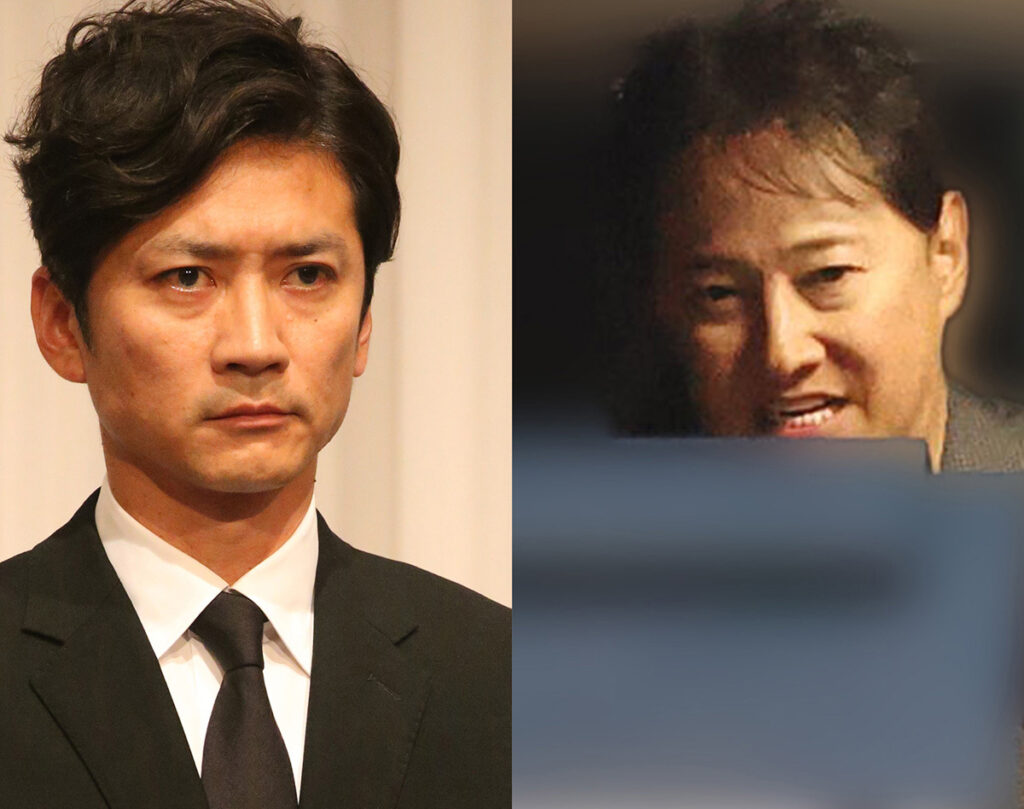On October 23, TV personality Taichi Kokubun (51) filed a human rights complaint with the Japan Federation of Bar Associations, claiming that he was improperly removed from a program for “non-compliance. On June 20, NTV announced that it was suspending the popular TV program “The! DASH! DASH!” due to “compliance issues. DASH!” The company’s president, Hiroyuki Fukuda, held a press conference on the afternoon of the same day, but did not disclose any details of the problematic behavior, citing “privacy protection. In response, Kokubu went on an indefinite hiatus, and TOKIO was disbanded a few days later. Commercial broadcasters other than NTV also decided one after another to suspend all programs in which Kokubu appeared, and in October, all regular programs in which he had appeared before his suspension came to an end. According to the petition, Mr. Kokubu was summoned to NTV on June 18 without any notice, was interviewed without any preparation, and admitted the facts. He was then asked not to say or do anything that could lead to the identification of the persons involved and was told that he would be dropped from the program. Mr. Kokubu claims that because he was not told what was found to be non-compliance and could not say or do anything that would lead to the identification of those involved, he was unable to give a specific explanation or apologize, leading to the dissolution of TOKIO, the cancellation of other programs, and the termination of contracts with sponsors.” (Reporter, National Newspaper, Social Affairs Department) Program suspension. Not only the officials and sponsors of other stations who decided to suspend the program, but also Kokubu, who was involved in the program but was not informed of what was identified as a compliance violation. The fact that he caused the noncompliance itself is still being criticized, and some are expressing sympathy for this point. What? What? You didn’t even let him know? Who and what should I apologize to? People around him will leave because they don’t know what he did, and I feel sorry for his family. Then, after a short period of silence, he “refuted” the situation. This trend reminds us of Masahiro Nakai (53), who was also a member of the “Women’s Seven” magazine in December last year. Last December, “Josei Seven” and “Shukan Bunshun” reported that Nakai had had trouble with a woman in June 2011, which immediately led to the cancellation or suspension of appearances on his TV programs one after another. On January 23, Mr. Nakai announced his retirement from show business, and on March 31, a third-party committee established by Fuji Television released its investigation report, finding that Mr. Nakai had committed “sexual violence against Ms. A as an extension of his work” based on the World Health Organization (WHO) definition. After that, Mr. Nakai remained silent for a while, but on May 12, his attorney began to refute the report, stating that “the reality of violent or forceful sexual acts generally associated with the Japanese term ‘sexual violence’ was not confirmed. By July, Nakai’s side had submitted a total of five “complaints” to the third-party committee. The third-party committee has not disclosed the details of the day of the trouble between Nakai and the woman, and the parties involved have not spoken out due to confidentiality obligations, so until now, it has only been known that it was some kind of sexual trouble. In the meantime, in August, “Shukan Yakushun” published an article recounting the details of the day of the trouble, based on a notice sent by the victim to Mr. Nakai and through interviews with the people involved and acquaintances of the victim. However, Mr. Nakai’s lawyers immediately issued a statement of dissatisfaction, refuting the content of the article as “very different from our understanding,” and stating that “we evaluate that the trouble was not caused by a disagreement. On the other hand, the lawyer representing the female victim also refuted Mr. Nakai’s side of the argument, saying, “We believe that Mr. Nakai’s representatives’ reference in this document to the matter as “not being due to a lack of consent” may be considered a breach of confidentiality. Since the two sides are in direct conflict with each other, the authenticity of the “notice” is uncertain at this point. However, although the situation is similar between Kokubun and Nakai, there is a “crucial difference” between the two. In the report of the third-party committee, the text of an e-mail that Mr. Nakai had sent to the victim when he invited her to his home just before the trouble was reported is also included. At first, Mr. Nakai invited the woman to dinner, and when she agreed, he sent messages such as, “Yes, I’m calling the members. When she agreed, he invited her to a restaurant with content that led her to believe that they would be dining together. Nakai then sent an e-mail to the effect that he “couldn’t find any members but would like to have dinner with them.” Since she was a big celebrity whom the station was using, she couldn’t refuse and went to his home. However, Mr. Nakai himself admitted at the third-party hearing that he had not actually looked for a restaurant and had not approached anyone. It is clear that the sexual trouble was caused by a “sneaky trick” to arrange for the two to be alone from the beginning. It will soon be six months since the start of the counterattack, but there is still no sign of Nakai’s return or restoration of his reputation. What will become of Kokubu?


